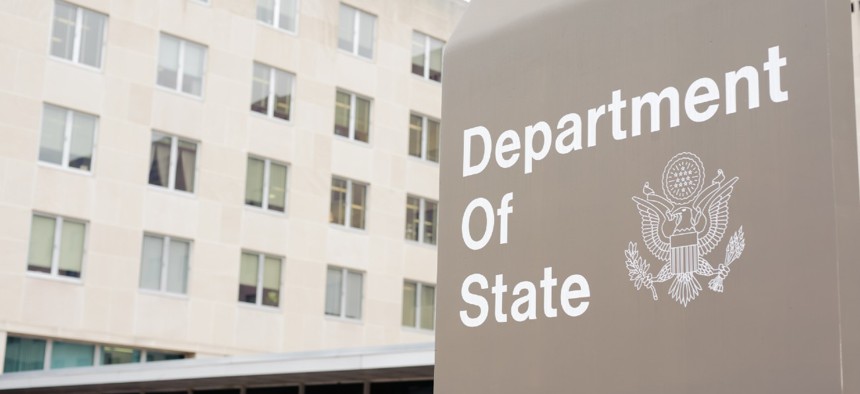
By Sorbis / Shutterstock.com
House Panel Advances Measure to Boost Hiring, Bonuses at State Department
There is bipartisan support for the first State Department authorization bill in nearly two decades.
A House panel advanced a bipartisan measure on Thursday to better support the State Department’s workforce, including by increasing hiring, retention and bonuses.
The 2021 State Department Authorization Act (H.R. 1157) would be the first such broad operating guideline for State in nearly two decades and would focus on boosting the department's foreign service and civil servants. After years of shedding staff and faltering efforts to improve diversity within the diplomatic corps, the bipartisan sponsors of the legislation said their bill would “revitalize” State. The House Foreign Affairs Committee approved the authorization measure for consideration on the House floor, where it received unanimous approval last Congress before failing to receive a vote in the Senate.
The legislation would require State to issue two major reports. Within 18 months, the department would have to issue a five-year strategic staffing plan. The document would identify shortages in both the civil and foreign services, broken down by grade and job type. State would put forward its desired number of employees for both services, including where each worker would be located. It would also be responsible for documenting the root causes for current worker shortages.
At a more than 10% cut in four years, State saw the second biggest workforce decline under President Trump, trailing only the Education Department. The measure would create new restrictions on reductions in force and separation incentives at State.
The second report would focus on diversity efforts. State would within six months of the bill’s passage publicly document its demographic data by applicants, job type and promoted workers. It would assess the department’s effectiveness in enforcing anti-harassment and anti-discriminaton policies and its ability to recruit a representative workforce. State would have to issue updates annually.
“With the passage of this legislation, the House Foreign Affairs Committee has taken a critical step toward revitalizing the State Department and equipping it with the resources it needs to better conduct diplomacy in the 21st century,” said Reps. Gregory Meeks, D-N.Y., and Michael McCaul, R-Texas, who lead the Foreign Affairs Committee, in a joint statement. “The COVID-19 pandemic is a reminder of the complex challenges facing the United States on the world stage and how important the work of our diplomats and development professionals is to protecting and advancing American citizens, interests, and values around the world.”
The bill would make it easier for former foreign service officers to reapply for their old jobs and remove certain qualification requirements for foreign affairs positions at the discretion of State leadership. It would create a bonus program for civil servants that was previously only for foreign servants and reinstate recruitment, retention and relocation incentives for difficult-to-fill posts. Any employee in a combat zone would be entitled to 20 days of rest and recuperation leave. The measure would also ensure all interns are paid.
The bill would also expand the State secretary’s ability to indefinitely suspend without pay any foreign service officer who loses his or her security clearance or commits a crime. It would expand appeal rights for State workers to those who are restricted or precluded from a certain position.
State would face a new requirement to occasionally conduct interviews with employees to assess why they remain in their jobs, and to conduct exit interviews will all departing workers on their reasoning for leaving. The department would have to catalogue those responses and use the information for potential policy changes. The measure would require State to create a recruitment plan for historically underrepresented groups and improve its professional development opportunities.
Meeks and McCaul said the authorization bill was the first step of many the committee would take to ensure that supporting the State workforce is “central to the work” of their committee.
NEXT STORY: A Perennial Health Insurance Conundrum







